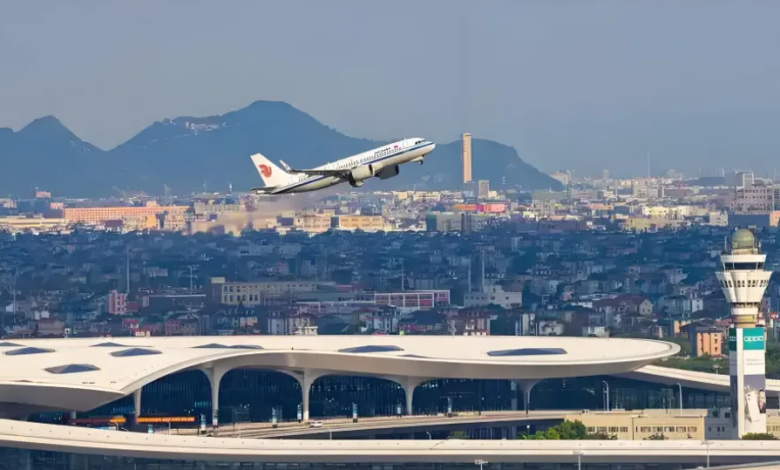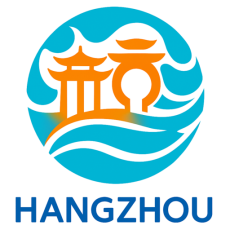
Hangzhou Xiaoshan International Airport (IATA: HGH, ICAO: ZSHC) is the primary aviation gateway to Hangzhou, the capital of Zhejiang Province, and one of China’s most important transportation hubs. Located about 27 kilometers (17 miles) east of downtown Hangzhou, the airport serves as a key connection point for domestic and international travelers, offering modern facilities, efficient services, and a growing network of flight routes.
Since its opening in 2000, Xiaoshan Airport has rapidly expanded, becoming one of the top 10 busiest airports in China, handling over 40 million passengers annually. Whether you’re flying in for business, tourism, or transit, this guide provides a detailed overview of the airport’s terminals, transportation options, amenities, and travel tips.
1. Airport Layout and Terminals
Hangzhou Xiaoshan International Airport consists of three main terminals:
Terminal 1 (T1)
- Domestic Flights: Serves most Chinese airlines, including Air China, China Eastern, and China Southern.
- Facilities:
- Check-in counters (A, B, C zones)
- Security checkpoints
- Duty-free shops (limited)
- Restaurants and cafés
Terminal 2 (T2)
- International & Some Domestic Flights: Handles long-haul flights and select domestic routes.
- Facilities:
- Expanded immigration and customs areas
- More duty-free shopping options
- Premium lounges (including Plaza Premium Lounge)
- Business centers
Terminal 3 (T3 – Under Construction)
- Future Expansion: Expected to open by 2025, increasing annual capacity to 90 million passengers.
- Features:
- State-of-the-art design
- More gates for wide-body aircraft
- Enhanced smart technology (self-check-in, facial recognition)
Pro Tip: Always check your flight’s terminal in advance, as some airlines may switch between T1 and T2.
2. Airlines and Flight Routes
Domestic Flights
HGH connects Hangzhou to all major Chinese cities, including:
- Beijing (PEK): ~2-hour flight, frequent daily departures
- Shanghai (SHA/PVG): Mostly served by high-speed rail (faster than flying)
- Guangzhou (CAN): ~2.5-hour flight
- Chengdu (CTU): ~3-hour flight
International Flights
Xiaoshan Airport operates direct flights to:
- Asia: Tokyo (NRT), Seoul (ICN), Singapore (SIN), Bangkok (BKK)
- Europe: Amsterdam (AMS), Frankfurt (FRA) (seasonal)
- North America: Los Angeles (LAX) (pre-pandemic, may resume)
- Middle East: Dubai (DXB)
Major Airlines Operating at HGH
- China Eastern Airlines (SkyTeam)
- Air China (Star Alliance)
- Hainan Airlines
- Xiamen Airlines
- International Carriers: Emirates, Korean Air, ANA
3. Transportation to/from the Airport
By Metro (Fastest & Cheapest Option)
- Line 1 (Xiaoshan International Airport – Xianghu):
- Connects the airport to downtown Hangzhou (approx. 50 minutes).
- Operates from 6:00 AM to 10:30 PM.
- Fare: ¥6 – ¥10 (1 –1–1.5).
By Taxi (Most Convenient)
- Travel Time: 30-45 minutes to downtown (depending on traffic).
- Cost: ¥100 – ¥150 (14 –14–21).
- Night Surcharge: 20% extra after 11:00 PM.
By Airport Shuttle Bus
- Routes:
- Hangzhou Railway Station (City Station): ¥20, ~1 hour
- Hangzhou East Railway Station: ¥25, ~1.5 hours
- Frequency: Every 30-60 minutes.
By Private Car (Didi or Rental)
- Didi (Chinese Uber): ¥80 – ¥120 (11 –11–17).
- Car Rental: Available at the airport (Hertz, Avis).
4. Airport Facilities & Services
Dining Options
- Chinese Restaurants: Local Hangzhou cuisine, noodle shops
- Western Fast Food: KFC, McDonald’s, Starbucks
- Cafés & Bakeries: Costa Coffee, 85°C Bakery
Shopping & Duty-Free
- Duty-Free Stores (T2): Cosmetics, liquor, luxury brands
- Souvenir Shops: Hangzhou tea, silk products
- Convenience Stores: FamilyMart, WHSmith
Lounges & VIP Services
- Plaza Premium Lounge (T2): Access via Priority Pass or business class tickets.
- China Eastern Lounge (T1): For first/business class passengers.
Other Services
- Free WiFi: Requires Chinese phone number for verification (use VPN if needed).
- Currency Exchange: Available in T1 & T2.
- Luggage Storage: Near arrivals (¥20 – ¥50 per bag).
- Medical Clinic: Emergency services available.
5. Immigration & Customs Procedures
For International Arrivals
- Passport Control: Foreigners must fill out an arrival card.
- Baggage Claim: Located after immigration.
- Customs Check: Red (declare) / Green (nothing to declare) channels.
For International Departures
- Check-in: Recommended 2.5 hours early for international flights.
- Security & Immigration: Lines can be long during peak hours.
Pro Tip: Use the e-channel (automated gates) if eligible (available for Chinese citizens and some visa holders).
6. Nearby Hotels & Transit Options
Airport Hotels
- Hangzhou International Airport Hotel (Inside T1, convenient for early flights).
- Pullman Hangzhou Xiaoshan (5-star, 5-minute drive from the airport).
Transit Passengers
- 24/72-Hour Visa-Free Transit: Available for eligible nationalities.
- Inter-Terminal Transfer: Free shuttle buses connect T1 and T2.
7. Future Expansion & Developments
- Terminal 3 (T3): Expected to open by 2025, increasing capacity.
- New Runways: To accommodate more long-haul flights.
- Rail Links: High-speed rail connection planned for faster city access.
8. Travel Tips for Passengers
✔ Check Terminal in Advance (T1 vs. T2).
✔ Arrive Early (2 hours for domestic, 3 hours for international).
✔ Download Translation Apps (Many staff speak limited English).
✔ Carry Cash/WeChat Pay (Some vendors don’t accept foreign cards).
Conclusion
Hangzhou Xiaoshan International Airport is a modern, well-connected hub that provides a smooth travel experience for both domestic and international passengers. With ongoing expansions and improved services, it continues to grow as a key gateway to East China’s economic and tourism centers.
Whether you’re visiting Hangzhou for West Lake, Alibaba’s headquarters, or tea plantations, HGH ensures a convenient start and end to your journey.





